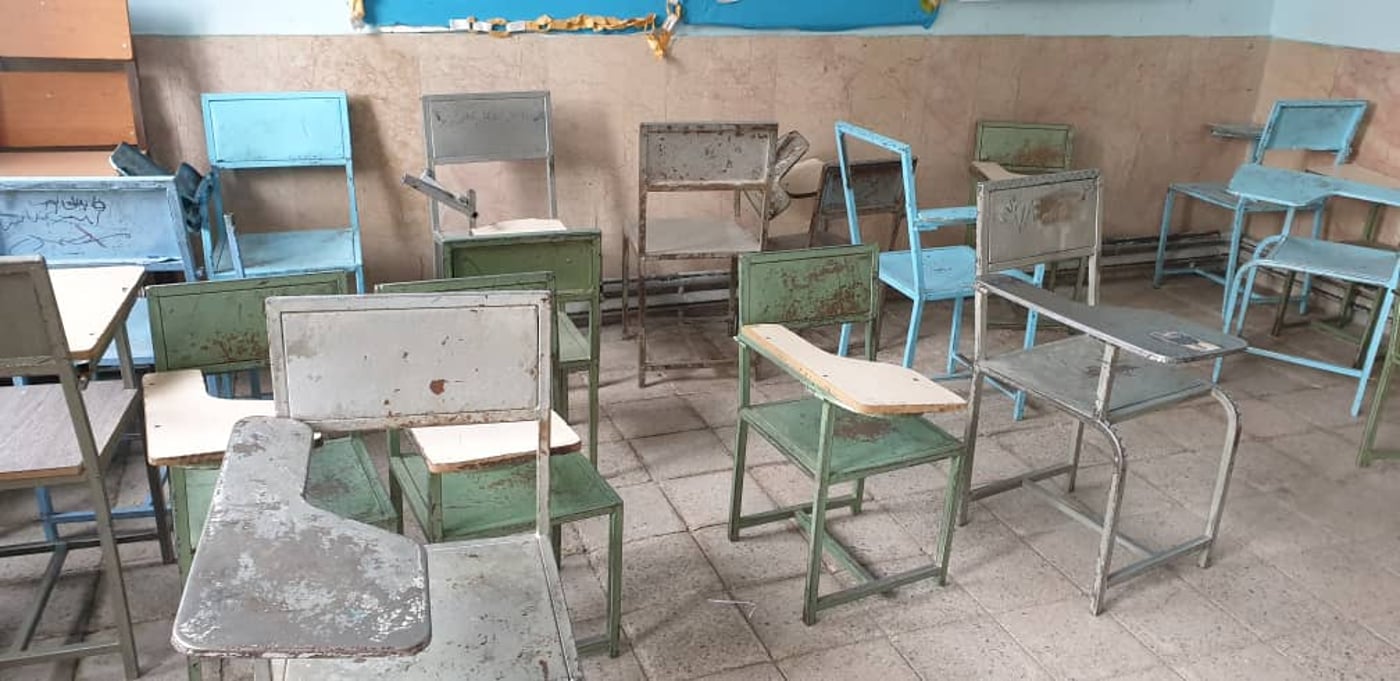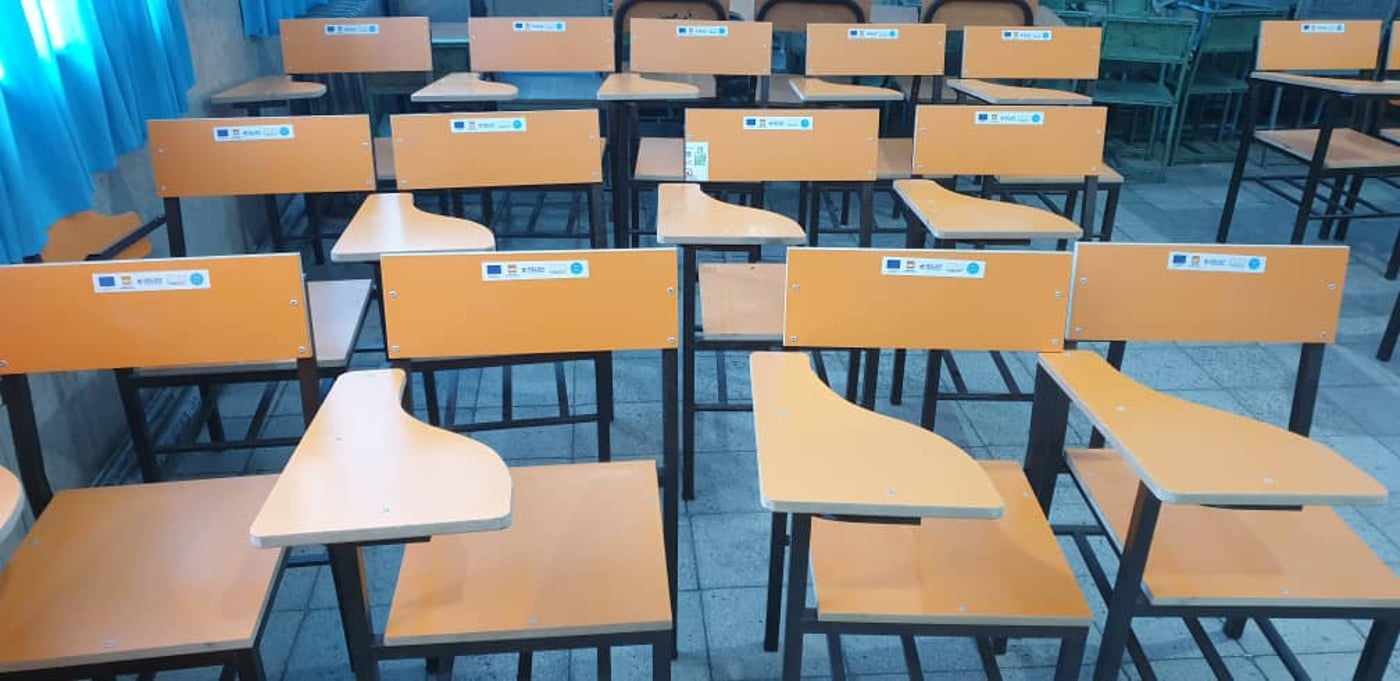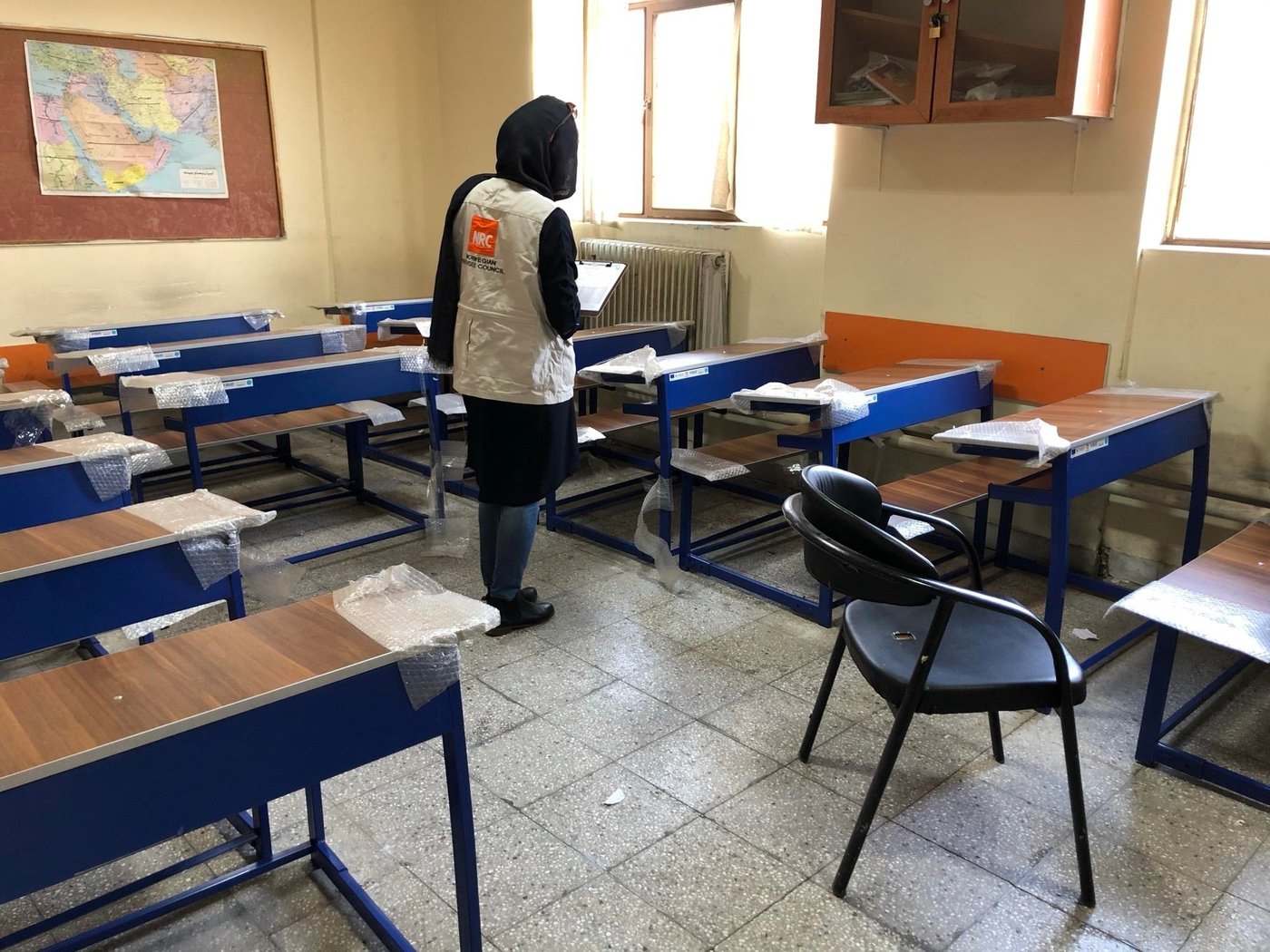“If we can provide a learning environment in which more students can go to school and enjoy a better-quality education, I think this not only has a positive impact on individuals, but also on their community and society in the long term,” says Reyhaneh, an education officer for the Norwegian Refugee Council (NRC) in Iran.
Currently, nearly half a million Afghan children are enrolled in Iranian public schools, which has put pressure on the education system. NRC provides assistance to those schools that are most in need, typically those located in deprived areas and hosting a high number of Afghan refugees.
Access to education for all
In 2015, an Iranian Decree stated that all Afghan children, regardless of their legal status, could enrol in Iranian public schools to receive formal education, effectively removing one of the main barriers to education.
“In our school, the relationship between Iranian and Afghan students is very good. We have around 130 students, 49 of them are Afghans,” says Ali*, the deputy principal of a lower secondary education school for boys in Tehran province. “The education of the student is important to us and we put time into it,” he shares with pride.
Preparing schools for a safe reopening
Due to overstretched resources, the equipment in many schools has become old, rusty and broken. Many of the younger students, especially first graders, have no choice but to sit at desks that are too big for them, and some of the older students have to squeeze together on desks that are too small. This type of environment can have a negative effect on child learning.

With the generous support of the European Union, NRC provides selected Iranian schools with new benches, whiteboards, desks, sports equipment and photocopy machines. Ali’s school was one of those selected.
“Our classrooms look much prettier,” says Ali. “When our students see the classrooms they say ‘how beautiful our classrooms have become, how beautiful our benches and desks are!’”
Throughout the Covid-19 pandemic, schools in Iran have been closed for long periods of time. “This period [of school closures] was a good opportunity for us to address the needs so that when students go back to school, they can enjoy a better educational environment and restart their education”, says Reyhaneh, reflecting on the transformational work NRC has delivered.
NRC is continuing to prepare public schools hosting Afghan refugees for a safe reopening through the provision of equipment, expansion of classrooms, and rehabilitation of toilets, handwashing facilities and drinking water stations.

“When a student comes to a class, he will enjoy it more and will like spending time here,” says Ali. “The teachers and I also enjoy seeing the classrooms in their new condition. There is a huge difference.”
The children who have missed out on so much learning due to the pandemic can now enter a safe and welcoming environment when they return to their classrooms, which is scheduled for September 2021.
***
NRC in Iran
Since 2012, NRC Iran has assisted displaced Afghans as well as their Iranian host communities. We work to improve protection and access to basic humanitarian services across nine provinces, and coordinate closely with the Bureau for Aliens and Foreign Immigrants Affairs, under Iran’s Ministry of Interior.
Despite the challenges brought by Covid-19, our teams have been able to adapt, respond, and continue supporting vulnerable people during the pandemic. In 2020, NRC reached over 137,000 individuals (a 33 per cent increase from 2019), supporting both Afghan women and men as well as vulnerable Iranians affected by natural disasters.
The project that Ali’s school benefitted from is part of a three-year project called “Enhanced Access to Rights, Essential Services and Livelihoods for Vulnerable Afghans Displaced in Iran”. The project began in January 2019 and is funded with the generous support from the European Union. This project is led by NRC, in partnership with Relief International, and the International Consortium for Refugees in Iran.
Read more about our work in Iran
* Name has been changed to respect the individual's wish for anonymity.
This publication was produced with the financial support of the European Union. Its contents are the sole responsibility of NRC and do not necessarily reflect the views of the European Union.


